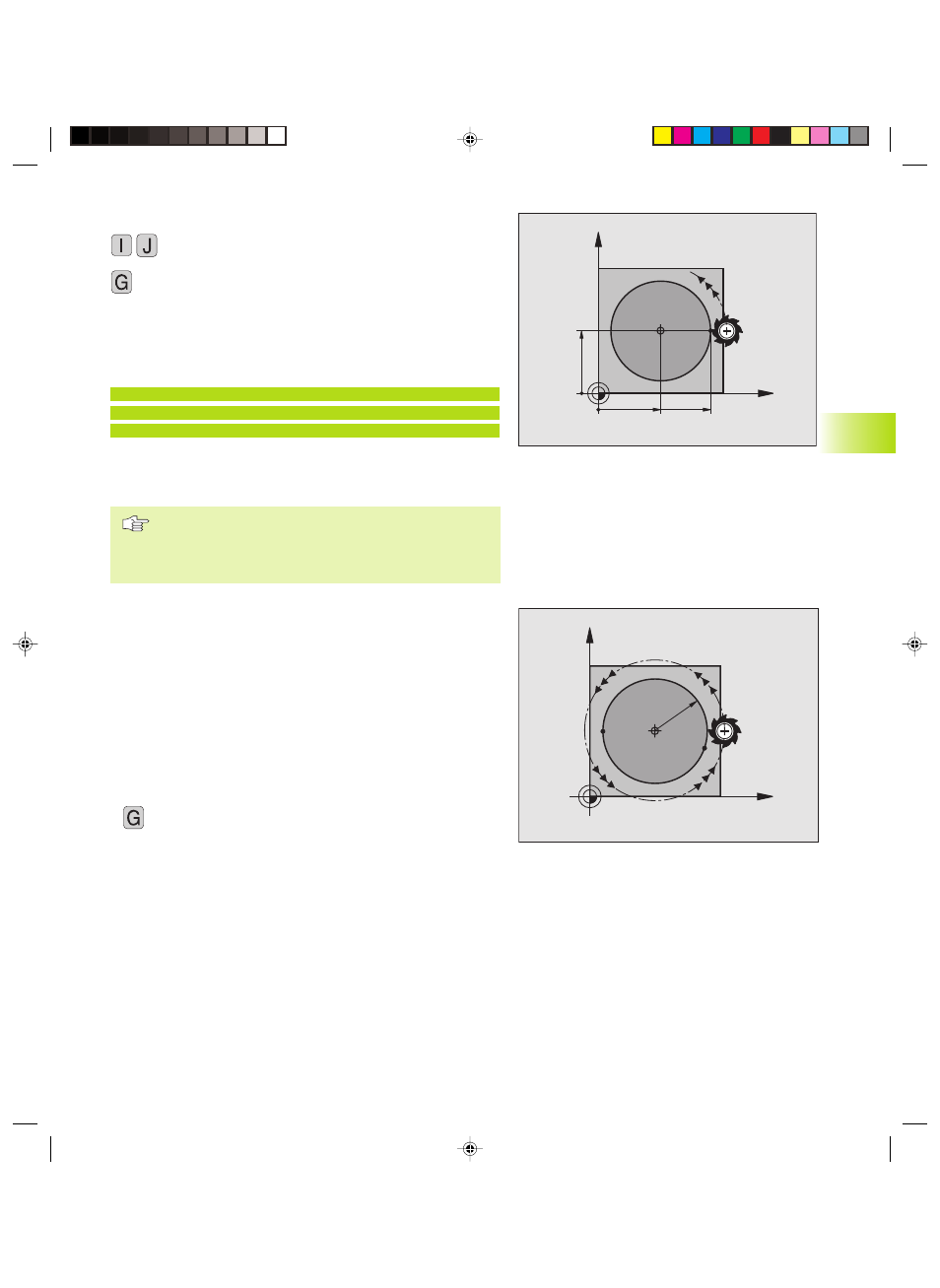4 p ath cont ours _ car tesian coor dinat es – HEIDENHAIN TNC 426B (280 472) ISO programming User Manual
Page 121

105
HEIDENHAIN TNC 410, TNC 426, TNC 430
6.4 P
ath Cont
ours _ Car
tesian Coor
dinat
es
ú
Move the tool to the circle starting point.
ú
Enter the coordinates of the circle center.
3
ú
Enter the coordinates of the arc end point.
Further entries, if necessary:
ú
Feed rate F
ú
Miscellaneous function M
Example NC blocks
N50 I+25 J+25 *
N60 G01 G42 X+45 Y+25 F200 M3 *
N70 G03 X+45 Y+25 *
Full circle
Enter the same point you used as the starting point for the end
point in a C block.
The starting and end points of the arc must lie on the
circle.
Input tolerance: up to 0.016 mm (selected with MP7431,
not for TNC 410)
Circular path G02/G03/G05 with defined radius
The tool moves on a circular path with the radius R.
Direction
■
In clockwise direction: G02
■
In counterclockwise direction: G03
■
Without direction indication: G05
The TNC traverses the circular arc with the last programmed
direction of rotation.
Note: The direction of rotation determines whether the arc is
concave or convex.
3
ú
Enter the coordinates of the arc end point.
ú
Radius R
Note: The algebraic sign determines the size of the
arc.
Further entries, if necessary:
ú
Feed rate F
ú
Miscellaneous function M
Full circle
For a full circle, program two blocks in succession:
The end point of the first semicircle is the starting point of the
second. The end point of the second semicircle is the starting point
of the first. See figure at right.
X
Y
25=I
45
25=J
CC
X
Y
I,J
S
1
=E
2
E
1
=S
2
R
Gkap6.pm6
29.06.2006, 08:06
105
